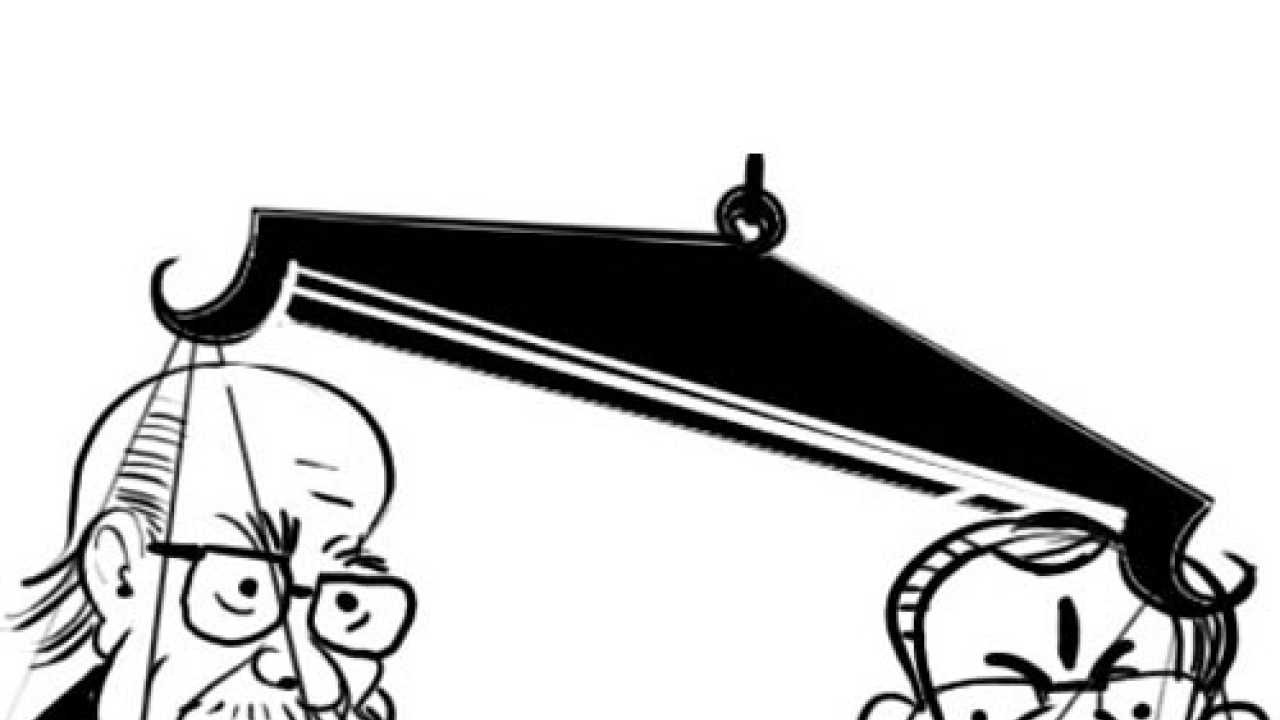
So what did BJP veteran LK Advani achieve by dramatically resigning from three party positions — only to withdraw his resignation equally dramatically? On the face of it, nothing, not even assurances. It’s tempting to view his retreat as the ignominious defeat of an old man who remains unreconciled to the closing of the BJP’s Vajpayee-Advani era and the party’s inevitable transition to a new leadership.
If Advani wanted to stop Narendra Modi from becoming first amongst equals in the BJP’s second-generation leaders, he certainly failed. His reported attempt to limit the powers of the BJP’s central election committee, headed by Modi, through the creation of a separate “election management committee” with a role in the choice of candidates for the next Lok Sabha polls, hasn’t succeeded either.
Yet, it would be myopic to conclude that all that Advani managed to convey through his conduct was peevish, graceless reluctance to accept Modi’s elevation. Cold logic suggests that Advani actually succeeded on three counts. First, he insinuated contention and conflict into what many in the BJP regard as a simple and natural decision to give Modi his due. This highlighted the fractious nature of the party leadership. By deploring the BJP’s “current functioning” and “direction”, and implicitly accusing Modi of being “concerned just with [his] personal agendas”, he also struck a chord with those in the BJP who see Modi as a megalomaniac and an autocrat who doesn’t respect the Sangh Parivar’s discipline and tradition of collective leadership.
Second, Advani presented himself as an alternative pole or centre of power within the BJP which can be trusted to articulate the ambitions and concerns of other party chief ministers or leaders with a degree of popular support, who want a say in allotting tickets and would resist any attempt by Modi to influence the process unduly. The leaders include Madhya Pradesh’s Shivraj Singh Chauhan (who openly challenged Modi’s claim about Gujarat’s unique “development” record, and was kept out of the BJP’s central parliamentary board), Chhattisgarh’s Raman Singh, and former Rajasthan CM Vasundhara Raje. It’s a safe bet that such leaders would rally around Advani and Murli Manohar Joshi (temporarily allied with Advani) in limiting Modi’s influence in the election committee. Advani’s role here is important to them.
Third, Advani’s stance instantly evoked sympathy from some BJP allies — expectedly, from the Janata Dal (United), which opposes Modi, and less expectedly, the Shiv Sena — who stressed their high comfort level with and faith in Advani as the National Democratic Alliance’s main negotiator-interlocutor. Remarkably, Advani never quit the NDA chair. The perception that Advani isn’t cut from the same cloth as Modi is mistaken. They both share a strong commitment to Hindutva and an anti-Nehruvian nation-building agenda based on Hindu primacy. Advani came to Modi’s rescue at a critical juncture — after the 2002 pogrom, which deeply embarrassed the BJP until Vajpayee suddenly veered away by emphasising raj dharma.
Thanks to these gains, Advani will continue to remain significant within the BJP even though his chances of making — leave alone winning — a credible bid for the prime minister’s job are remote. He will have more than mere nuisance value.
The crisis also highlights the BJP’s degeneration and the RSS’s stranglehold on it as its ideological mentor, political arbiter and organisational gatekeeper. RSS chief Bhagwat had to intervene to resolve the crisis. This dependence on an unelected body doesn’t speak highly of the BJP or bode well for our democracy.
The author is a writer, columnist, and professor at the Council for Social Development, Delhi. Views expressed are personal.